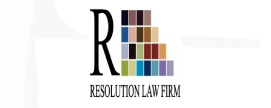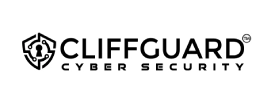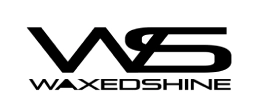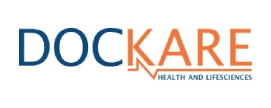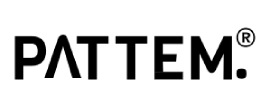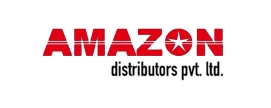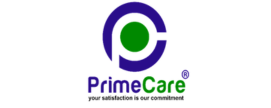Certificate of Conformity
Implementation, Consulting, Auditing & Certification at one place . We focus on taking your business to new heights.
Request a Call Back
Get Free Consultation
Have any Questions?
Mail us Today!
Contact@b2bcert.com
Overview
The process of obtaining a Certificate of Conformity can vary depending on the industry, the type of product, the regulatory requirements of the specific country or region, and the certifying organization involved. A “Certificate of Conformity” (CoC) is a document issued by a regulatory authority, certification body, or manufacturer that certifies that a product, service, or system complies with certain standards, regulations, or specifications. The purpose of a Certificate of Conformity is to provide assurance to customers, regulatory bodies, and other stakeholders that the product or service meets the required quality, safety, and performance standards.
Process
The CoC certification process involves several steps to ensure that a product meets the required standards, regulations, and specifications. The process can vary based on the industry, country, and certifying organization, but here’s a general outline of the steps typically involved in obtaining a Certificate of conformity:
- Determine Applicable Standards and Regulations: Identify the relevant standards, regulations, and requirements that your product must adhere to. This could involve researching industry standards, safety regulations, environmental guidelines, and other applicable criteria.
- Preparation and CoC Documentation: Gather all necessary documentation related to your product’s design, manufacturing process, testing results, and quality control procedures. This documentation will be used to demonstrate your product’s compliance.
- Select a CoC Certification Body: Choose a recognized and accredited certification body that has the authority to issue Certificate of conformity for your industry and the specific standards you’re targeting.
- Application Submission: Submit an application to the chosen certification body. This application typically includes details about your product, its specifications, the standards it needs to conform to, and the documentation you’ve prepared.
- Documentation Review: The certification body will review the submitted documentation to ensure it aligns with the relevant standards. They may request additional information or clarifications if needed.
- Product Testing and Evaluation (if applicable): Depending on the product and the standards, the certification body might require additional testing or evaluation to verify compliance. This could involve laboratory testing, performance assessments, and more.
- Factory Inspection (if applicable): In some cases, the certification body may conduct an on-site inspection of your manufacturing facilities to verify that your processes align with the standards. This step is often important for industries with complex or safety-critical products.
- Assessment and Verification: The certification body will assess the submitted documentation, test results, and any other relevant information
Benefits
Instant Business Growth
Management
Reduced waste
Reduces errors
Improved delivery and production schedule
Annual evaluations uphold standards.
Benefits of having Certificate of conformity
Here are some key benefits of obtaining a Certificate of Compliance:
- Legal Compliance:
- Operational Efficiency
- Credibility and Trust
- Market Access and Expansion
- Consumer Confidence
- Risk Mitigation
- Health and Safety
- Regulatory Approval
- Employee Morale and Satisfaction
- Sustainability and Environment
- Competitive Advantage
- Contractual Requirements
Advantages of Certificate of Conformity
- Improved internal communication and process management.
- It is a guarantee of the quality, safety, and dependability of food products.
- It saves money that would have been spent on recalls of defective products.
- A significant improvement in your market image and brand loyalty.
- Greater trust in disclosures.
- Foodborne disease prevention
- Increase in employee morale.
- Effective resource utilisation.
- Controlling food safety hazards in a timely and effective manner.
- Systematic administration of prerequisite programs.
- Effective decision-making.
Our Advice
Assuming that you are considering how to get Certificate of conformity Certification. If it’s not too much trouble, contact B2BCERT, a main worldwide organization giving interviews, confirmation, reviews, and other related help all over the globe. You can undoubtedly arrive at B2BCERT by just visiting www.b2bcert.com where you can talk with a specialist or you can likewise compose an inquiry to contact@b2bcert.com so one of our masters will reach you at the earliest to give the most ideal arrangement on the lookout.
Our Services
- ISO Certification
- ISO 9001 Certification
- ISO 14001 Certification
- ISO 45001 Certification
- ISO 22000 Certification
- ISO 27001 Certification
- ISO 13485 Certification
- ISO 17025 Certification
- ISO 27701 Certification
- ISO 20000-1 Certification
- ISO 27032 Certification
- ISO 22483 Certification
- ISO 26000 Certification
- ISO 22301 Certification
- ISO 42001 Certification
- ISO 42001 Certification
- ISO 27017 Certification
- ISO 27018 Certification
- ISO 50001 Certification
- ISO 27014 Certification
- ISO 29990 Certification
- ISO 37001 Certification
- ISO 41001 Certification
- ISO 21001 Certification
- ISO 55001 Certification
- ISO 28000 Certification
- ISO 22716 Certification
- ISO 15189 Certification
- ISO 41001 Certification
- FSSC 22000 Certification
- OHSAS 18001 Certification
- SA 8000 Certification
- HACCP Certification
- GMP Certification
- GDPR Certification
- GDP Certification
- GLP Certification
- HIPAA Certification
- PCI DSS Certification
- SOC 1 Certification
- SOC 2 Certification
- VAPT Certification
- CE Certification
- ROHS Certification
- BIFMA Certification
- FCC Certification
- HALAL Certification
- KOSHER Certification
- NEMA Certification
- Certification of Conformity
- GHP Certification
- Free Sale Certification
- FDA Certification
- GACP Certification























